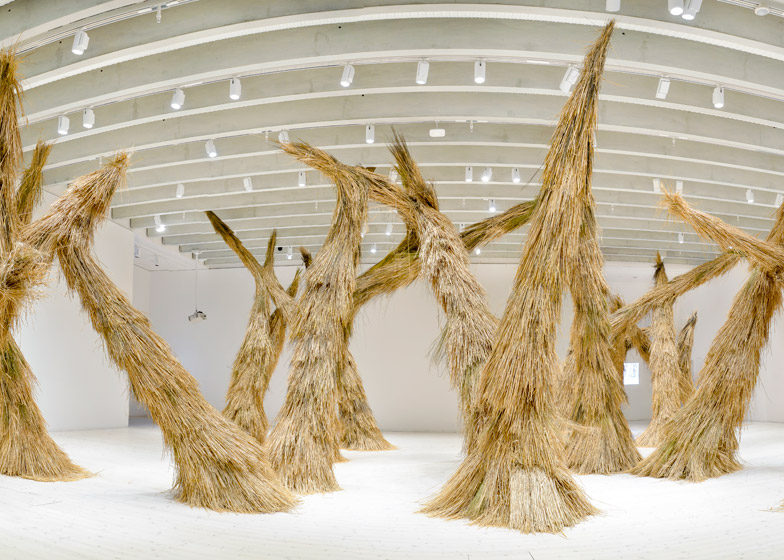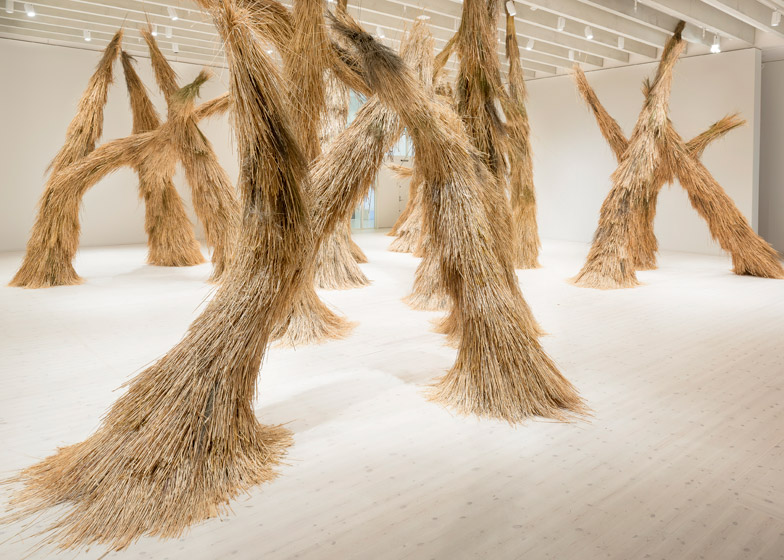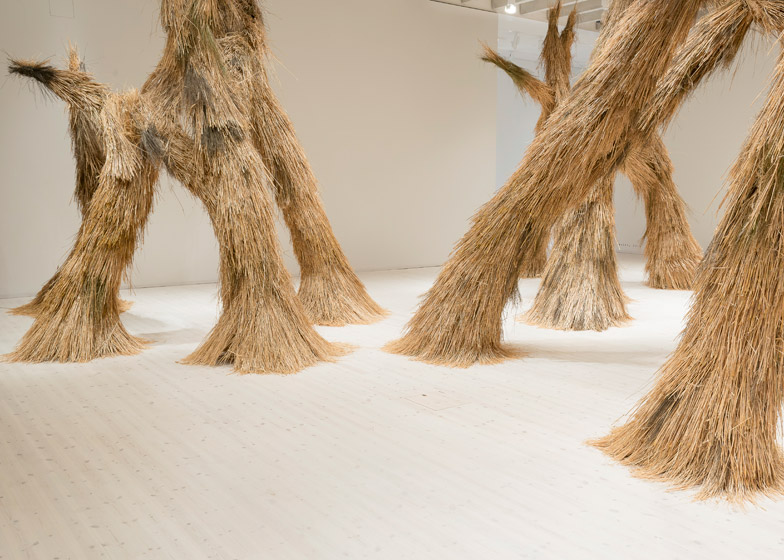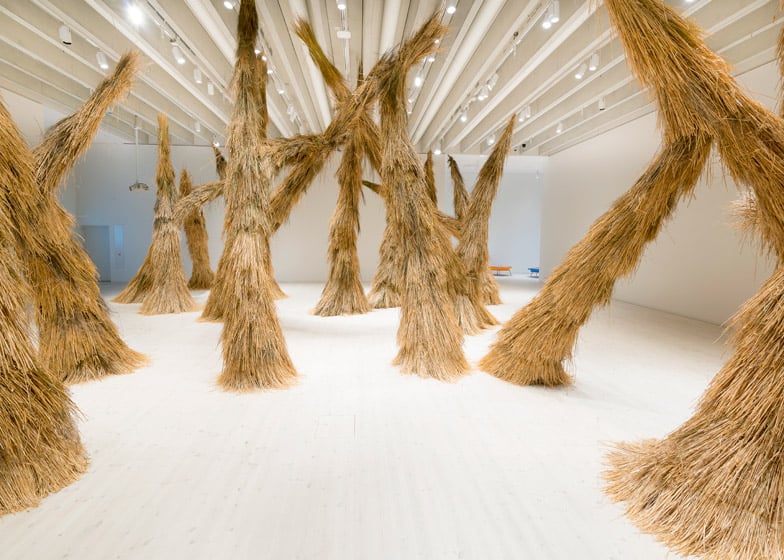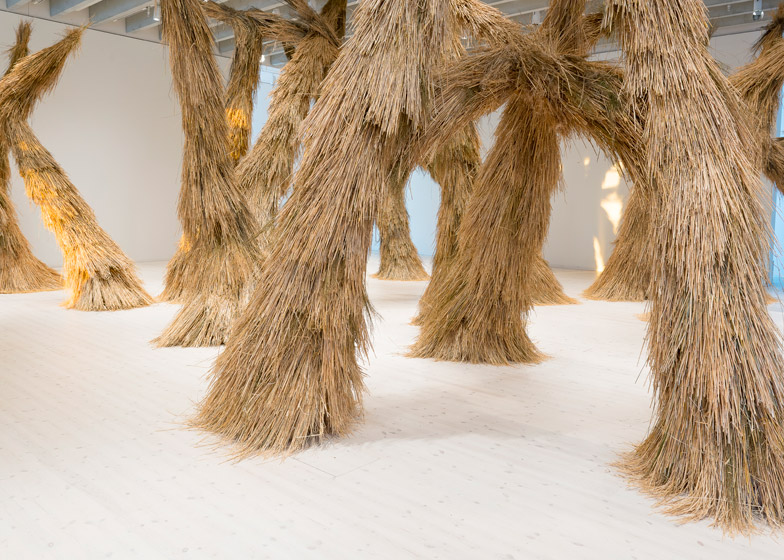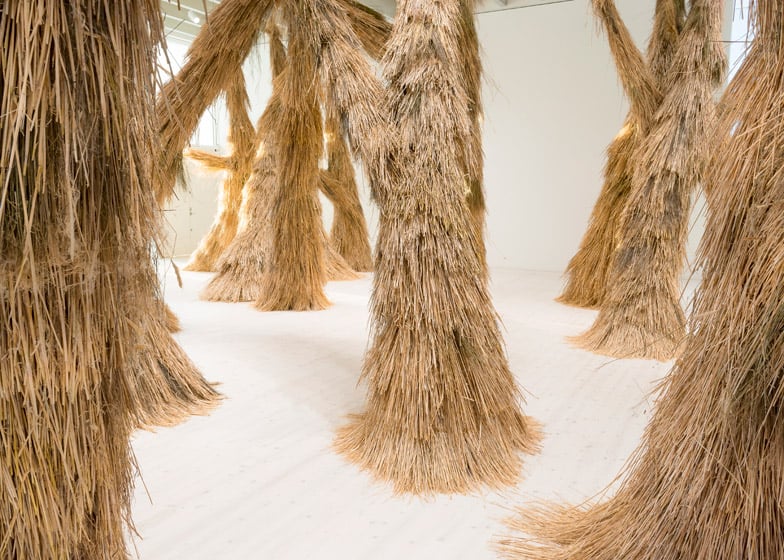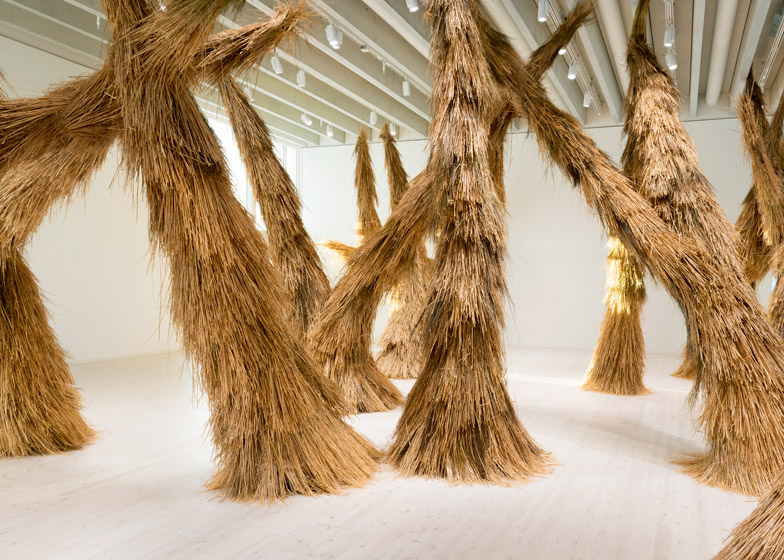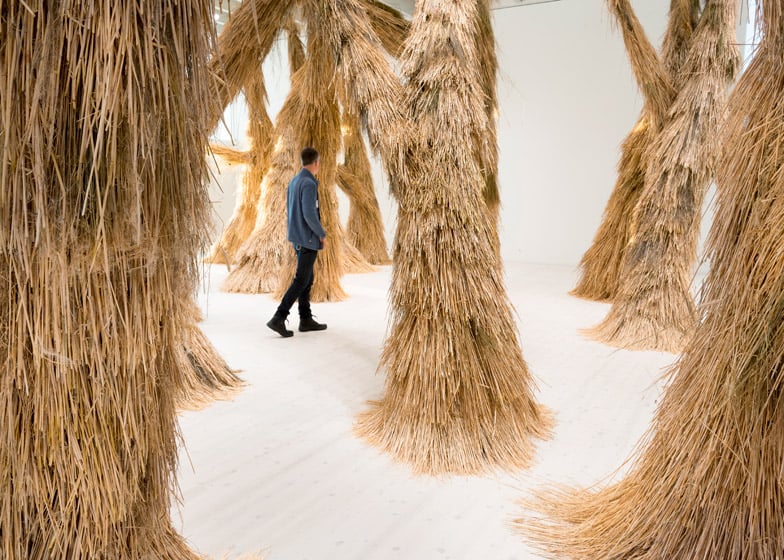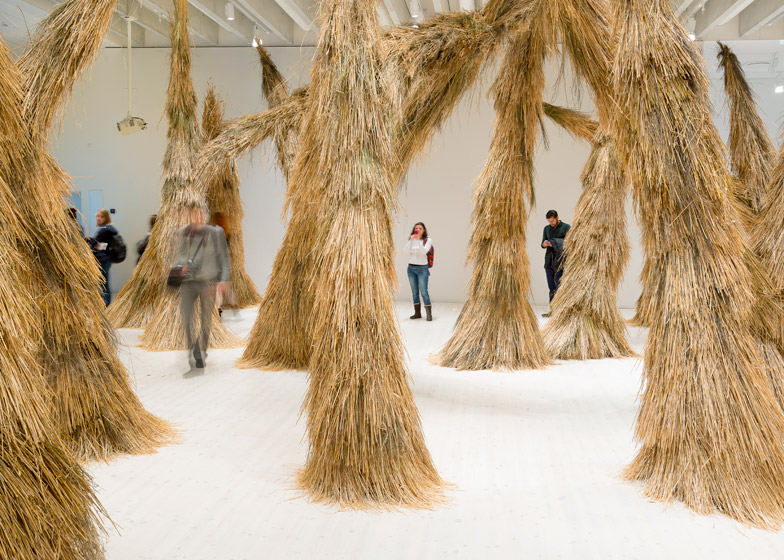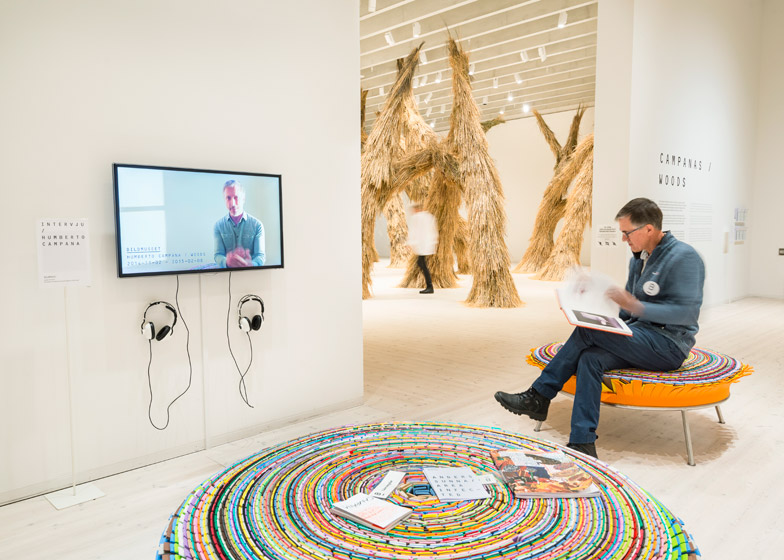Brazilian designers Fernando and Humberto Campana have created an indoor "forest" of flax and wood at the Bildmuseet in Umeå – their first project in Sweden (+ slideshow).
The Campana brothers' site-specific Woods installation inside the Swedish contemporary arts museum comprises thick angled strands of textured materials sourced from the local countryside.
"We found the inspiration in nature," said Humberto Campana in a statement. "The message we wanted to generate was bringing nature indoors. The forest taking its place back and turning tables."
Strips of wood and flax are shaped into shaggy forms that reach up to the ceiling. Visitors to the museum can walk around and in between the vertical elements.
The São Paulo duo, best known for creating unusual furniture pieces from everyday objects and materials, gathered the lengths into bunches and attached them to strings so they hang downward.
The bristly tree-like elements become thinner as they reach the ceiling and are angled to pass across each other.
Some sections stem from others like tree branches, creating more complex structures that tower above visitors walking through the space.
Housed in a white room within the Bildmuseet, the installation creates a setting designed to look like a surreal woodland. Woods opened on 2 November and runs until 8 February 2015.
Earlier this year the Campana brothers paid tribute to their "mentor" Massimo Morozzi in an interview with Dezeen during Clerkenwell Design Week in May.
"He had the capacity to understand design," said Humberto Campana. "Design is not just about functionality: it's about concepts, getting a reaction, not following trends, following your own heart. That's something that I learned from him."
Earlier this year, architect David Chipperfield revealed another indoor forest installation at the Neue Nationalgalerie in Berlin – its last exhibition before a major renovation project.
Photography is by Mikael Lundgren, courtesy of Bildmuseet and Estudio Campana.

